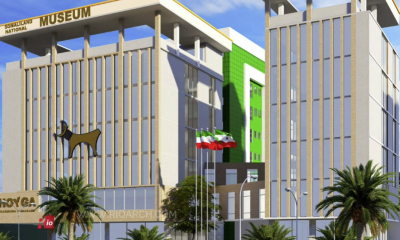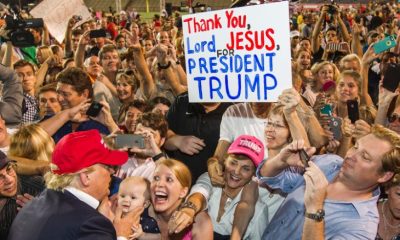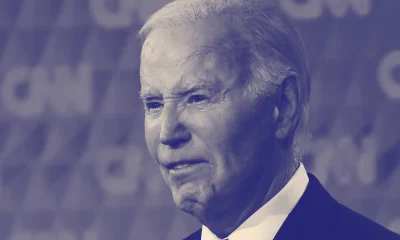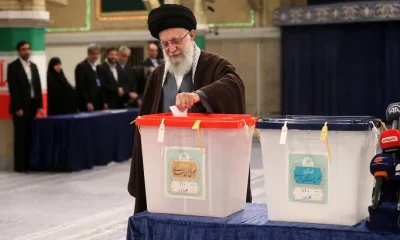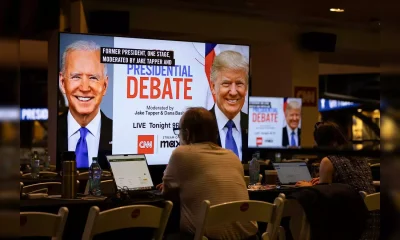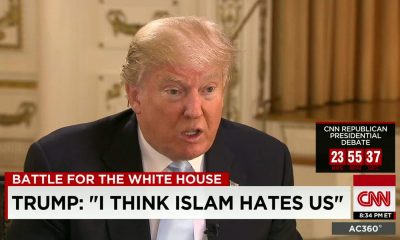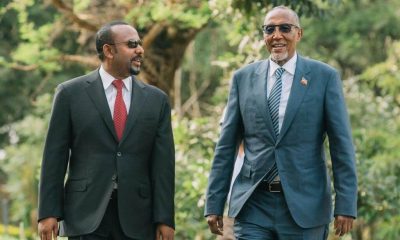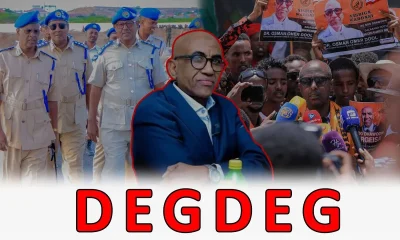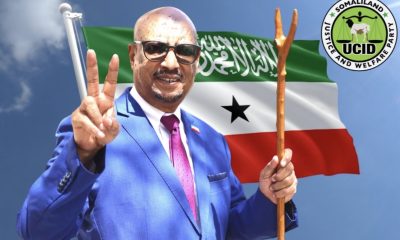Elections
Election Manipulation and Foreign Influence Cast Shadow Over Somaliland Politics
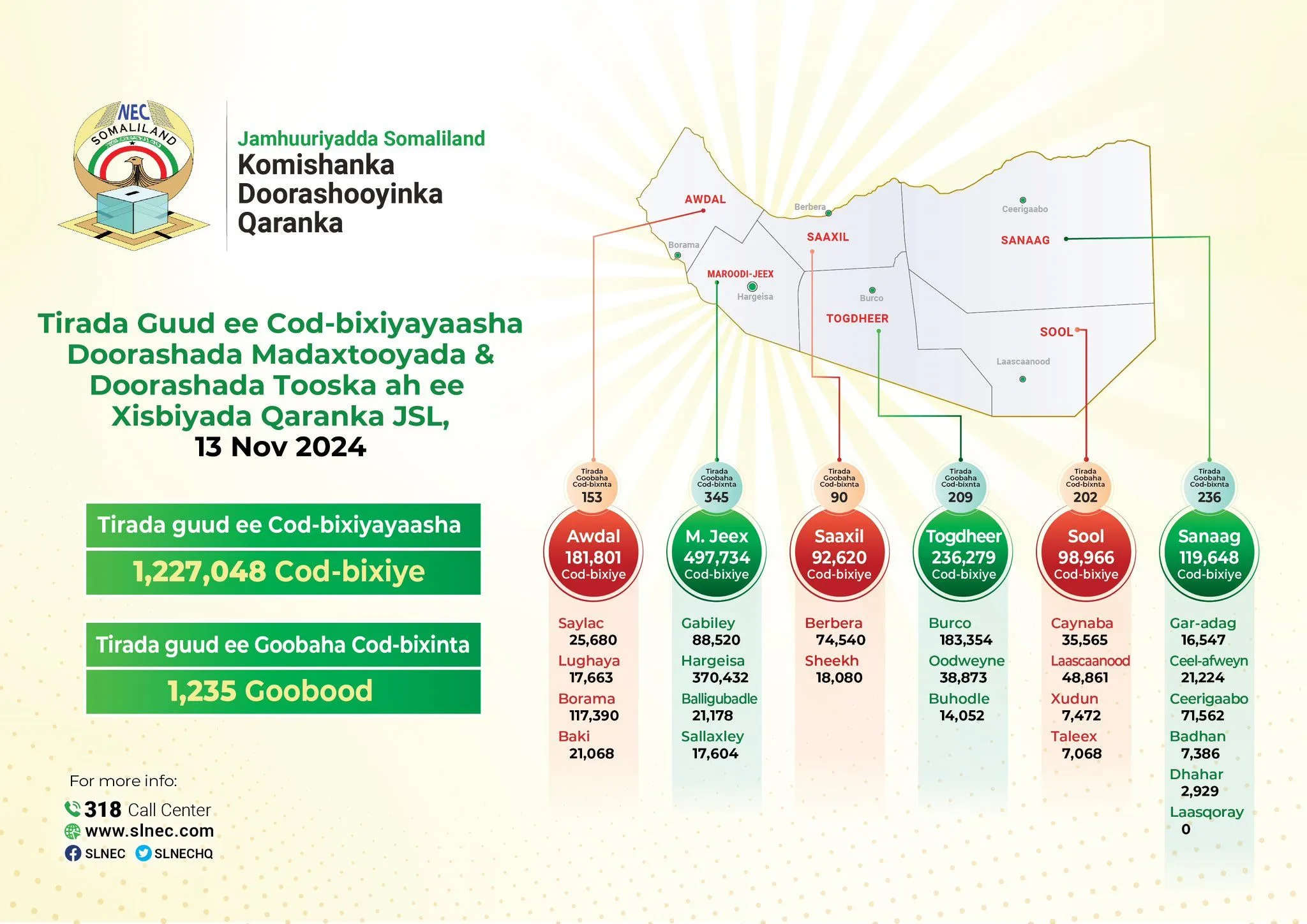
Somaliland’s upcoming elections marred by reports of political parties paying voters and foreign agents influencing the process. A secret report reveals unprecedented financial manipulations.
With Somaliland’s elections slated for November 13, 2024, alarming reports have surfaced detailing unprecedented financial manipulations and foreign influence within the political landscape. According to a secret report obtained by waryatv.com, political parties in Somaliland have been distributing salaries to individuals who pledge their votes, with promises of doubled payments post-election.
The report highlights how various countries and foreign entities have vested interests in Somaliland, from policy concerns to economic gains. These foreign agents, including governments, companies, and other entities, finance political campaigns to sway Somaliland’s policies and public opinion in their favor. Despite the significant influence exerted by these foreign players, Somaliland lacks a dedicated department to monitor and trace the activities of these foreign lobbies.
The situation is exacerbated by the difficulty in tracking the flow of money within Somaliland’s political system. Some of political parties have reportedly spent substantial amounts of money across different tribes in all regions of Somaliland. Payments to individuals and promises of monthly salaries until election day, with the amount doubling after voting, are practices that have never been seen before in Somaliland’s political history.
The report also sheds light on the involvement of key economic players, such as banks and telecom companies, in financing political campaigns. These institutions, working alongside foreign agents, make it challenging to trace financial transactions and monitor political donations. This lack of transparency undermines the democratic process and raises questions about the integrity of the upcoming elections.
In a surprising twist, some members of Somaliland’s parliament and journalists have been implicated in these financial manipulations. The report notes that parliamentarians and journalists often travel abroad, particularly to the UK, to open new bank accounts and manage funds. The irony of journalists, who are supposed to hold politicians accountable, being part of this financial web further complicates the situation.
Currently, there is no system in place in Somaliland to provide data and analysis on political lobbying and financial contributions. This lack of transparency makes it difficult to hold political parties accountable and ensures that foreign agents can continue to influence the political process unchecked.
As the election date approaches, tensions in Somaliland are rising. The elections are expected to be highly tribal, with passionate and often heated exchanges becoming commonplace.
The involvement of foreign agents and the financial manipulation by political parties have only added fuel to the fire, making the political environment increasingly volatile.
The upcoming elections in Somaliland are being heavily influenced by financial manipulations and foreign interests. The secret report obtained by waryatv.com paints a concerning picture of a political system under siege by money and external influences.
To safeguard democracy and ensure a fair election process, there is an urgent need for greater transparency, accountability, and monitoring of political finances and foreign lobbying activities.
Elections
‘I am absolutely voting for Donald Trump’: Undecided voters react to Biden’s debate performance
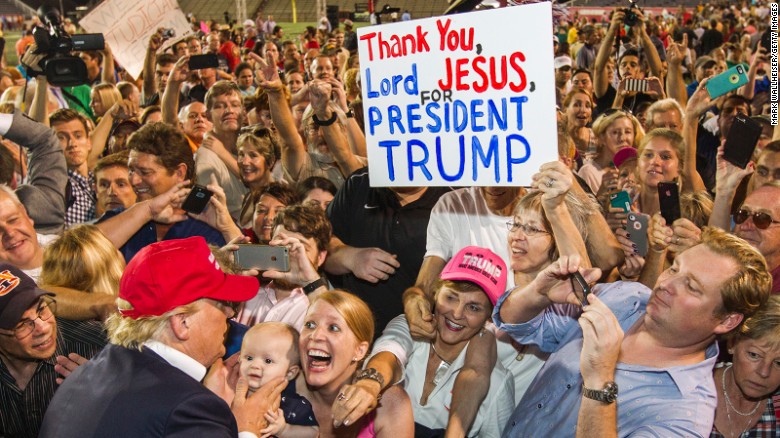
Biden’s Faltering Debate Display Shakes Undecided Voters, Strengthens Trump’s Appeal
In a tightly contested presidential race, debates play a critical role in shaping voters’ perceptions, especially among those who are undecided. The recent debate between Joe Biden and Donald Trump has garnered significant attention due to Biden’s performance, which many viewers found lacking. The reactions of undecided voters to this debate could have substantial implications for the election outcome.
Of the 13 undecided voters interviewed by Reuters, 10 described Biden’s performance in overwhelmingly negative terms. The descriptors “feeble,” “befuddled,” and “embarrassing” were commonly used, reflecting a broad sentiment of disappointment and concern.
Gina Gannon, 65, Georgia, Previously a Biden supporter, Gannon was particularly critical, citing concerns over Biden’s apparent weakness and confusion. Her reaction underscores the anxiety some voters feel about Biden’s ability to project strength on the global stage. Gannon unequivocally stated, “I am absolutely voting for Donald Trump now.”
Meredith Marshall, 51, Los Angeles, Initially a Biden voter, Marshall expressed shock at Biden’s performance, pointing to a perceived lack of mental acuity. Despite her dislike for Trump, she is now leaning towards him, encapsulating a common theme of reluctant support for Trump due to doubts about Biden.
Scott Harrington, Harrington’s reaction was one of profound disappointment. Despite his intense dislike for Trump, he found Biden’s performance worse than expected and is now considering abstention, highlighting the debate’s potential to drive voter disengagement.
Not all reactions were negative. Some voters found aspects of Biden’s performance acceptable or even commendable:
Ashley Altum, initially torn between Biden and a third-party candidate, Altum leaned towards Biden post-debate, appreciating his direct responses despite his slip-ups. This illustrates that Biden’s approach still resonates with some voters who prioritize clarity and directness.
The debate has underscored the critical importance of performance in swaying undecided voters. Biden’s perceived faltering has amplified existing concerns about his age and mental capacity, a narrative that Trump and his supporters are likely to exploit. The debate’s aftermath suggests a shift among undecided voters towards Trump, albeit sometimes reluctantly.
The reactions from undecided voters following the debate indicate a troubling trend for Biden. While debates traditionally have limited impact, the current polarized and closely contested political climate means that every voter counts. Biden’s performance may have solidified doubts among undecided voters, pushing them towards Trump and potentially influencing the election outcome. As the campaign progresses, both candidates will need to address these concerns directly to sway the critical undecided voter base.
Elections
Democratic Dilemma: Debate Performance Sparks Speculation on Biden’s Future
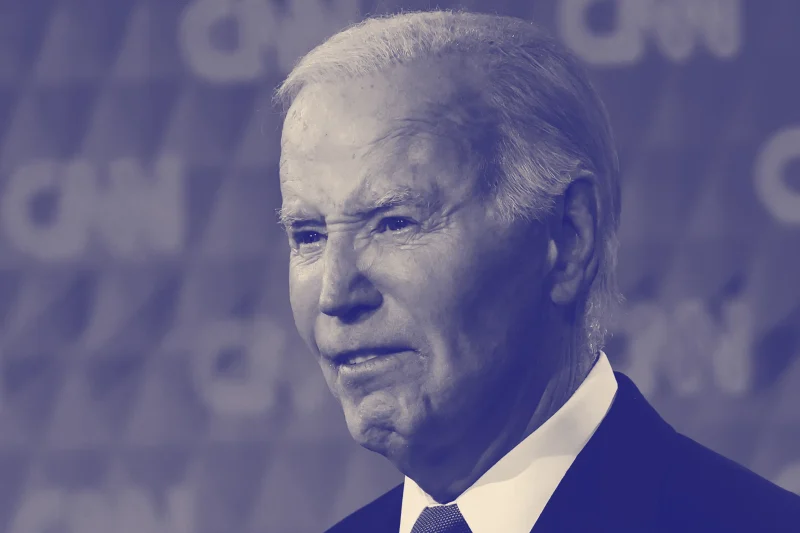
Disappointing Debate Performance Raises Concerns About President Biden’s Viability for 2024
President Joe Biden’s recent debate against Donald Trump has reignited discussions about his fitness for a second term. Historically, debates have played a crucial role in shaping public perception of presidential candidates. For instance, the 1960 Kennedy-Nixon debates and the 2008 Obama-McCain debates significantly influenced voter sentiment. Biden’s debate performance, marked by a faltering tone and occasional incoherence, echoes concerns reminiscent of past debates where candidates’ physical and mental capacities were scrutinized.
The debate’s outcome has far-reaching implications beyond U.S. borders. As the leader of a global superpower, the U.S. President’s ability to articulate policies and present a strong front is crucial. Biden’s perceived weakness could embolden adversaries and create uncertainty among allies. In a world where geopolitical tensions are high, especially with nations like China and Russia, the President’s image is vital for maintaining international stability and U.S. influence.
Domestically, Biden’s performance could impact key swing states where independent voters hold significant sway. Economic concerns, healthcare, and social justice are central issues for these voters. Biden’s struggle to present coherent answers may raise doubts about his ability to address these challenges effectively. Conversely, Trump’s more articulate performance, despite factual inaccuracies, might resonate with voters prioritizing strong leadership over policy details.
The debate performance has led to speculation about potential successors if Biden were to step aside. Figures like Vice President Kamala Harris, Governors Gavin Newsom, Gretchen Whitmer, Andy Beshear, and Roy Cooper have been mentioned as possible candidates. Each of these individuals brings unique strengths and regional support that could shape the Democratic strategy moving forward.
As the current Vice President, Harris has significant visibility and experience on the national stage. However, her previous presidential campaign struggled to gain traction, raising questions about her viability as a top candidate.
The Governor of California, Newsom, has a strong progressive base but faces criticism for his handling of state issues. His leadership during the pandemic and stance on climate change make him a prominent figure, but his association with California’s challenges could be a liability.
Michigan’s Governor, Whitmer, has gained national attention for her handling of the COVID-19 crisis and her strong stance on social justice issues. Her leadership in a key swing state could make her a compelling candidate.
Governors of Kentucky and North Carolina, respectively, Beshear and Cooper have managed to maintain Democratic leadership in traditionally conservative states, showcasing their bipartisan appeal and political acumen.
The debate performance has undoubtedly raised questions about President Biden’s future on the 2024 ticket. While some Democrats call for a change, others advocate for refining the campaign strategy. The party must balance addressing concerns about Biden’s capabilities with avoiding a divisive primary battle that could weaken their position against a formidable Republican opponent.
As the election approaches, the Democratic Party faces a critical decision that will shape its strategy and potential for success in the upcoming election. The next few months will be pivotal in determining whether Biden remains the nominee or if the party will pivot to a new candidate to lead the charge in 2024.
Elections
Iran begins voting in presidential election with limited choices
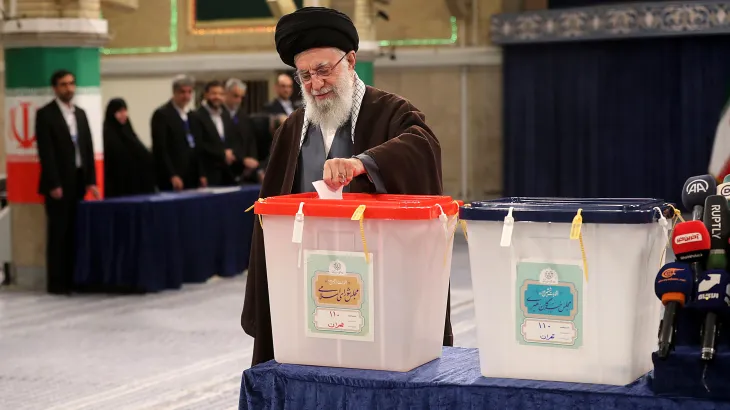
Iranians vote under strict candidate controls and amidst regional conflicts
Iranians commenced voting on Friday to elect a new president following the untimely death of Ebrahim Raisi in a helicopter crash. The election is marked by a tightly controlled selection of four candidates, all loyal to the supreme leader, amidst escalating regional tensions and growing public frustration.
Polling stations opened at 8 a.m. (0430 GMT) and are scheduled to close at 6 p.m. (1430 GMT), although extensions until midnight are customary. The election occurs against the backdrop of rising tensions due to conflicts involving Israel and Iranian allies Hamas in Gaza and Hezbollah in Lebanon, along with heightened Western scrutiny over Iran’s advancing nuclear program.
While the election is unlikely to result in significant policy shifts for the Islamic Republic, it could have implications for the succession of Ayatollah Ali Khamenei, the 85-year-old supreme leader who has held power since 1989. Khamenei urged for a high voter turnout to counter a legitimacy crisis exacerbated by economic hardships and restrictions on political and social freedoms.
“The durability, strength, dignity, and reputation of the Islamic Republic depend on the presence of people,” Khamenei stated on state television after casting his vote. “High turnout is a definite necessity.”
Voter turnout has significantly declined over the past four years, with a predominantly youthful population growing increasingly discontented with political and social constraints. Manual counting of ballots means the final results are expected to be announced within two days, although initial figures may be released sooner. If no candidate secures at least 50% plus one vote, including blank ballots, a run-off between the top two candidates will occur on the first Friday after the initial result declaration.
Among the four candidates, three are hardliners, and one is a low-profile moderate, supported by the reformist faction which has been marginalized in recent years. Critics argue that the low and declining turnout reflects the system’s eroded legitimacy. Only 48% of voters participated in the 2021 election that brought Raisi to power, with turnout hitting a record low of 41% in the recent parliamentary election.
Although the next president is not expected to significantly alter Iran’s nuclear program or its support for militia groups across the Middle East—since such top state matters are under Khamenei’s control—the president manages day-to-day government operations and can influence the tone of Iran’s foreign and domestic policies.
A hardline watchdog body, consisting of six clerics and six jurists aligned with Khamenei, vets candidates. From an initial pool of 80, only six were approved, with two hardline candidates later dropping out.
The remaining hardliners include Mohammad Baqer Qalibaf, the parliament speaker and former commander of the Revolutionary Guards, and Saeed Jalili, a former nuclear negotiator who served in Khamenei’s office. The sole moderate, Massoud Pezeshkian, remains committed to theocratic rule but advocates for detente with the West, economic reform, social liberalization, and political pluralism.
Pezeshkian’s chances depend on reigniting the enthusiasm of reform-minded voters who have largely abstained from voting in recent years due to disillusionment with previous pragmatist presidents who failed to bring about significant change. He may also benefit from the hardliners’ inability to unify their vote.
All candidates have pledged to revive the struggling economy, which is afflicted by mismanagement, state corruption, and sanctions reimposed since the U.S. withdrew from Tehran’s 2015 nuclear agreement with six world powers.
In recent weeks, Iranians have widely used the hashtag #ElectionCircus on social media platform X, with some activists, both domestic and international, calling for an election boycott, arguing that high turnout would legitimize the Islamic Republic.
As Iran’s tightly controlled presidential election unfolds, the outcome may not herald significant policy changes but will play a crucial role in shaping the country’s political landscape and the potential succession of its supreme leader. The economic and regional challenges facing Iran continue to influence voter sentiment and the overall legitimacy of the electoral process.
Elections
Biden and Trump Clash in First Presidential Debate of 2024 Election
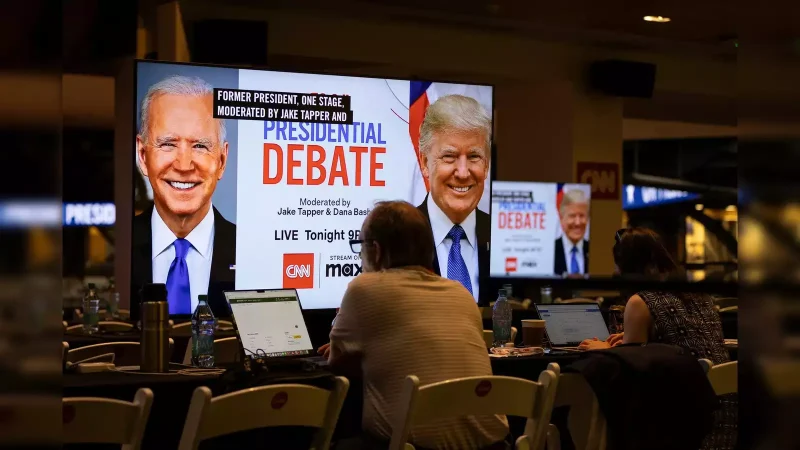
Heated exchanges over economy, foreign affairs, and immigration dominate the debate
In a highly anticipated event, U.S. President Joe Biden and former President Donald Trump engaged in their first debate of the 2024 election on Thursday night. The debate, held at CNN headquarters in Atlanta, saw both candidates exchanging sharp barbs over critical issues such as the U.S. economy, foreign affairs, and immigration.
From the outset, the debate was marked by intense exchanges. Trump criticized the current state of the U.S., stating, “We’re like a Third World nation and it’s a shame.” He further accused Biden of causing a loss of respect for the country, saying, “We’re no longer respected. They think we’re stupid.”
Biden countered by calling Trump “the worst president in American history,” referencing a group of historians who had ranked Trump last among the country’s 46 presidents. Biden added, “This guy has no sense of American democracy.”
Trump, often taking an aggressive stance, frequently interrupted Biden, who struggled with a halting and raspy voice. The candidates repeatedly accused each other of lying, with a post-debate CNN survey indicating that 67% of viewers felt Trump convincingly won the debate, compared to 33% for Biden. This outcome alarmed some Democrats concerned about Biden’s performance.
Trump repeatedly linked the nation’s problems to immigration, claiming that migrants crossing the southwestern U.S. border were harming the economy and taking American jobs. He asserted, “We had the safest border in the world,” during his presidency, now calling it “the most dangerous place in the world.” He further dramatized the situation, stating, “We are now living in a rat’s nest,” and alleging that migrants were responsible for unprecedented levels of crime, though there is no substantial evidence supporting the claim that migrants commit more crimes than native-born Americans.
Biden refuted Trump’s claims, arguing that Trump was “exaggerating, he’s lying,” and highlighting that 40% fewer migrants were crossing the border due to recent tighter entry restrictions.
Trump promised to end Russia’s war with Ukraine and secure the release of Wall Street Journal reporter Evan Gershkovich from a Russian prison if he wins the election. However, he did not provide specific details on how he would achieve these goals.
Biden criticized Trump’s stance on Russia, labeling President Vladimir Putin as “a war criminal” and questioning Trump’s understanding of international relations. Biden highlighted Trump’s desire to withdraw from NATO and accused him of lacking a comprehensive foreign policy strategy.
Biden accused Trump of inciting the January 6, 2021, Capitol riot, where Trump supporters attempted to block Congress from certifying Biden’s 2020 victory. Trump shifted the blame to then-House Speaker Nancy Pelosi for inadequate security measures.
Biden attacked Trump over his recent conviction on 34 felony counts related to falsifying business records to cover up a $130,000 hush money payment to a porn star before the 2016 election. Trump dismissed the case, stating, “That case is going to be appealed and won.” He faces sentencing on July 11, with potential outcomes ranging from probation to a four-year prison term. Despite these legal issues, the U.S. Constitution does not prevent a convicted felon from serving as president.
Thursday’s debate was historic as it was the earliest presidential debate in a U.S. election cycle and the first time two U.S. presidents debated each other. This debate was also the first face-to-face encounter between Biden and Trump since their last debate in October 2020. Trump had notably skipped Biden’s January 2021 inauguration, and their animosity has continued to manifest publicly, including in the debate.
With no studio audience, the debate was an intimate yet intense confrontation, primarily attended by a handful of aides. First Lady Jill Biden was present, while Trump’s wife, Melania, was absent. Several Republicans eyeing the vice-presidential slot for Trump attended. Both Biden, 81, and Trump, 78, are the oldest candidates in U.S. presidential history, with national polls showing a virtual dead heat between them.
As millions of Americans have likely made up their minds, the debate may not have swayed many voters. However, for political independents and those less engaged in the electoral process, the debate could provide insights or direction. A second debate is scheduled for September 10.
Stay tuned for more updates and in-depth analysis of the 2024 presidential election as Biden and Trump continue their contentious battle for the White House.
Elections
Fading Rhetoric: Trump’s Shift from ‘Radical Islamic Terrorism’ to Domestic Issues
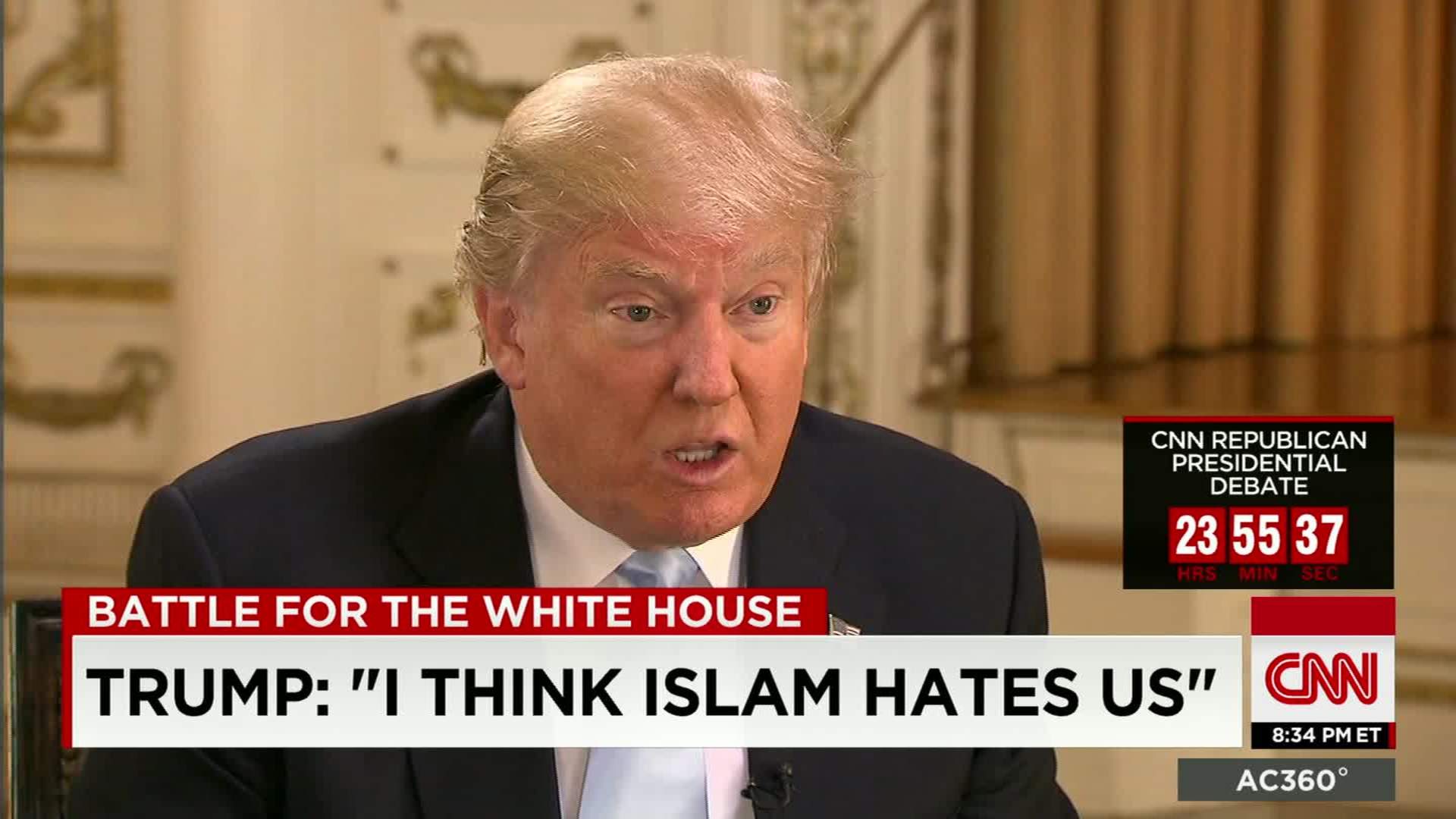
In 2016, Donald Trump’s presidential campaign was heavily punctuated by a vow to combat “radical Islamic terrorism.” This phrase was a cornerstone of his rhetoric, reflecting and amplifying public fear and concern about Islamist terrorism. Fast forward to 2024, as Trump seeks a return to the White House, this once-prominent phrase has all but vanished from his lexicon, replaced by an emphasis on immigration, crime, and other domestic issues.
On Sunday, a coordinated terrorist assault in southern Russia, which left at least 20 people dead, failed to elicit any response from Trump on his social media platforms. This silence marks a significant departure from his previous tendencies, where such incidents would trigger immediate and fervent responses.
Experts suggest that the shift is a strategic move, driven by two main factors: a decrease in public concern about terrorism and a calculated effort to appeal to Muslim American voters. Brian Levin, an extremism expert, notes that Trump, being “more of an opportunist than an ideologue,” is aligning his rhetoric with the issues that currently resonate more with voters.
In the lead-up to the 2016 election, foreign-inspired extremism ranked high among voter concerns. The Islamic State controlled significant territory, and a series of IS-inspired attacks heightened American fears of terrorism. Trump’s campaign capitalized on these fears, with frequent references to “radical Islam” and sweeping declarations of intent to combat it.
Today, however, the landscape has shifted. The threat of international terrorism, while still present, no longer occupies the forefront of American public concern. Domestic issues such as the economy, democracy, crime, and immigration dominate the political discourse. Consequently, Trump has adjusted his rhetoric accordingly, focusing on these areas to garner support.
The potential for gaining Muslim votes in key battleground states might also influence Trump’s toned-down rhetoric on Islamist terrorism. Gabriel Rubin, a justice studies professor, suggests that Trump’s silence on the issue might be a tactical decision aimed at not alienating Muslim voters who could be pivotal in swing states.
President Joe Biden’s strong support for Israel during its military campaign in Gaza has strained his relationship with many Muslim voters. This tension presents an opportunity for Trump, who could potentially attract disaffected Muslim voters by avoiding inflammatory rhetoric and focusing on shared concerns.
Despite the shift in focus, the threat of terrorism has not disappeared. U.S. officials, including FBI Director Christopher Wray, have warned of increased potential for terrorist attacks, especially in the wake of the Gaza conflict. However, a Gallup report from April indicates that overall concern about terrorism remains lower than during the peak years of 2015 and 2016.
During his first campaign and early presidency, Trump’s rhetoric included claims such as “Muslims hate us” and calls for a “complete and total shutdown” of Muslims entering the U.S. This harsh stance resonated with his base but also drew significant criticism and accusations of Islamophobia.
Since then, his focus has shifted dramatically. An analysis of Trump’s recent social media activity shows a significant drop in references to “radical Islamic terrorism.” Instead, his statements are now more centered on border security, illegal immigration, and other domestic issues.
One of Trump’s most controversial actions was the implementation of the “Muslim ban,” which Biden repealed upon taking office. However, Trump has vowed to reinstate the ban if re-elected, signaling that his stance on Muslim immigration has not fundamentally changed. This promise remains a point of contention and concern for many in the Muslim community.
As Trump navigates his 2024 campaign, his rhetoric has evolved to address the current priorities and concerns of the American electorate. While his focus on “radical Islamic terrorism” has waned, his strategic shifts aim to capture the votes needed to reclaim the White House. The changing landscape of voter concerns and the complex interplay of domestic and international issues continue to shape the political narrative as the election approaches.
Elections
Trump’s Libertarian Disaster: Heckles, Boos, and Bitter Rejection
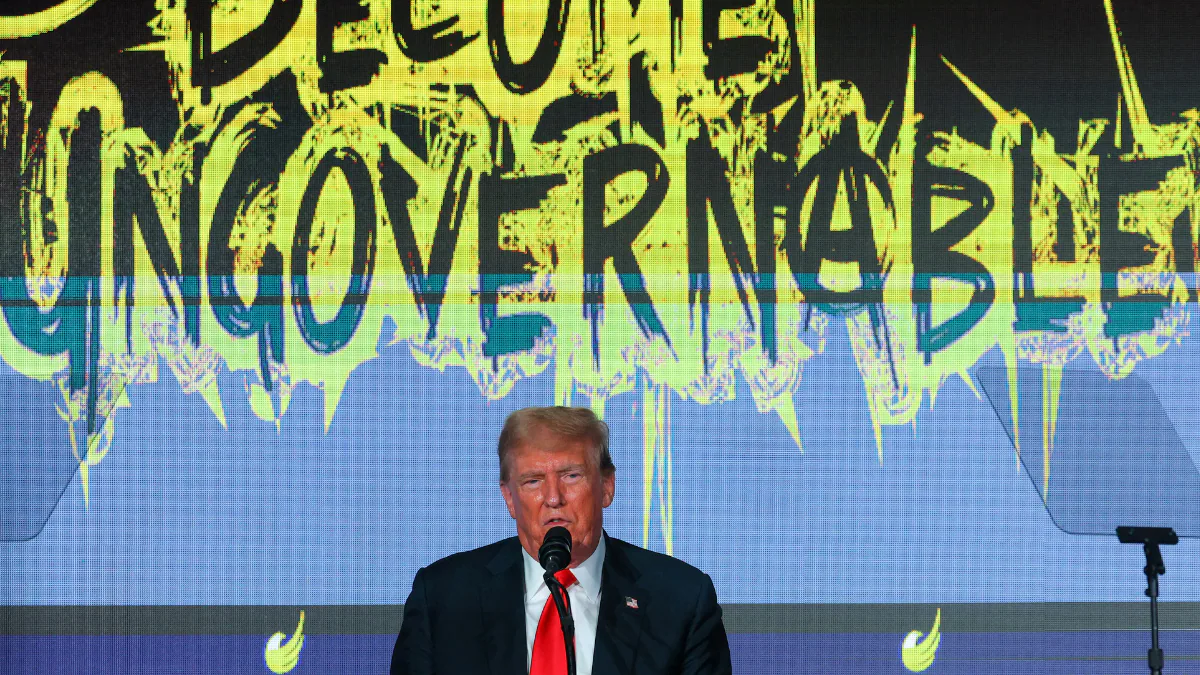
In an unprecedented spectacle, former President Donald Trump faced a storm of boos and heckles at the Libertarian National Convention on Saturday night. This stark contrast to his typically adoring rallies exposed a significant rift between Trump and the Libertarian base, who blame him for his actions during the COVID-19 pandemic and accuse him of undermining their principles of limited government and individual freedom.
Trump’s reception at the Libertarian convention was anything but warm. As he attempted to sway the crowd with criticisms of President Joe Biden, labeling him a “tyrant” and “the worst president in the history of the United States,” the audience responded with cries of “That’s you” and “Donald Trump is a threat to democracy.” The heckling crescendoed with shouts of “Lock him up!” and “You already had four years, you a******.”
This sharp rebuke highlighted the deep-seated animosity many Libertarians feel towards Trump, stemming from his administration’s handling of the COVID-19 vaccine rollout and perceived failure to oppose public health restrictions on the unvaccinated.
Libertarians, staunch advocates of individual liberties, see Trump’s rush to develop the vaccine and his insufficient resistance to public health mandates as betrayals of their core values. The convention hall echoed with chants of “End the Fed,” signaling their dissatisfaction not just with Trump but with broader government overreach.
Trump’s attempt to align himself with Libertarian values by joking about his criminal indictments and promising to reduce the life sentence of Silk Road founder Ross Ulbricht received a mixed response. While there was a fleeting moment of applause, it was drowned out by the overwhelming negative reactions.
The Libertarian rejection of Trump was not merely verbal. The event saw visible protests, with a banner proclaiming “No wannabe dictators!” being dragged away by security. This illustrates the palpable anger and resistance among Libertarians against what they perceive as Trump’s authoritarian tendencies.
Trump’s dismissive remark, “You don’t want to win,” aimed at the Libertarian crowd, underscores the tension between his ambitions and the Libertarian commitment to their principles, even if it means limited electoral success. His attempt to belittle their electoral influence by referring to their historical 3% vote share reveals a fundamental disconnect with the party’s ethos.
The Libertarian Convention was not just a platform for Trump but also a stage for independent candidate Robert F. Kennedy Jr., who is gaining traction among voters disillusioned with the two major parties. This highlights a growing trend towards seeking alternatives outside the traditional political duopoly.
The Libertarian rejection of Trump signifies a broader discontent with the current political landscape. With polling showing that most Americans are not in favor of a repeat of the 2020 presidential contest between Biden and Trump, there is a potential surge in support for independent or fringe candidates.
Trump’s encounter with the Libertarian National Convention serves as a stark reminder of the diverse political undercurrents within the United States. His efforts to win over the Libertarians were met with a vociferous and public rebuke, reflecting deep ideological divides and a growing appetite for alternative political voices. As the 2024 election looms, this incident underscores the volatile and unpredictable nature of the current American political climate.
Elections
Chad’s Prime Minister Resigns Amid Controversial Election Results
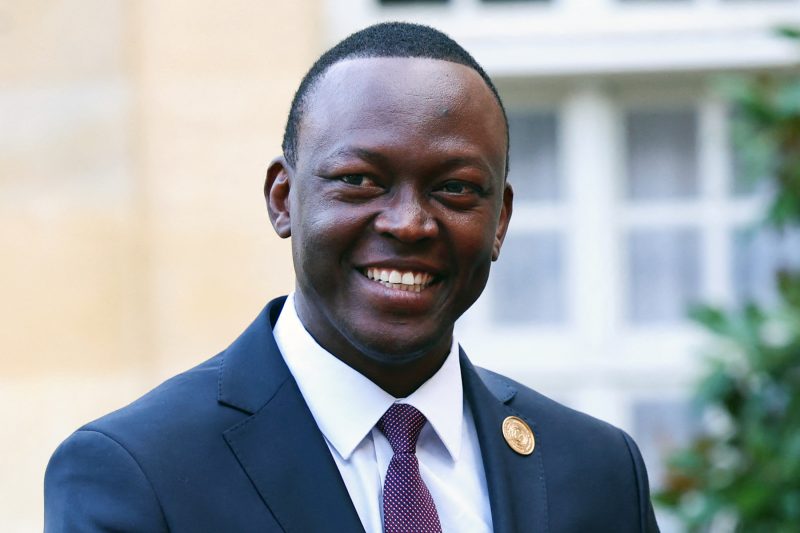
Opposition Leader Succes Masra Steps Down Following Confirmation of Deby’s Election Win
In a dramatic turn of events, Chad’s Prime Minister and opposition leader Succes Masra has resigned following the contentious confirmation of interim President Mahamat Idriss Deby’s victory in the May 6 presidential election. Masra, who has been a vocal critic of the ruling junta that seized power in April 2021, announced his resignation on Wednesday, citing deep-seated electoral disputes and the need for political integrity.
Masra’s appointment as Prime Minister in January was initially seen as a conciliatory move by the transitional government to appease the opposition and ensure a smoother path to the polls. However, the disputed election outcome has reignited tensions within the nation’s political landscape.
Deby, who ascended to power after the death of his father, Idriss Deby Itno, in April 2021, has faced ongoing opposition and allegations of undemocratic practices. Masra, a staunch advocate for democratic reforms, has consistently challenged the legitimacy of Deby’s rule and the fairness of the election process.
The resignation of Masra raises significant concerns about Chad’s political stability and the future of its governance. Analysts predict that this development may lead to increased unrest and further complicate efforts to achieve a peaceful political transition.
Masra’s departure underscores the complexities of Chad’s political environment, where power struggles and calls for democratic change continue to shape the nation’s trajectory. As Chad navigates this turbulent period, the international community will be closely monitoring the situation, emphasizing the importance of transparent and fair political processes.
Elections
Sunak and Starmer Gear Up for High-Stakes UK Election Race
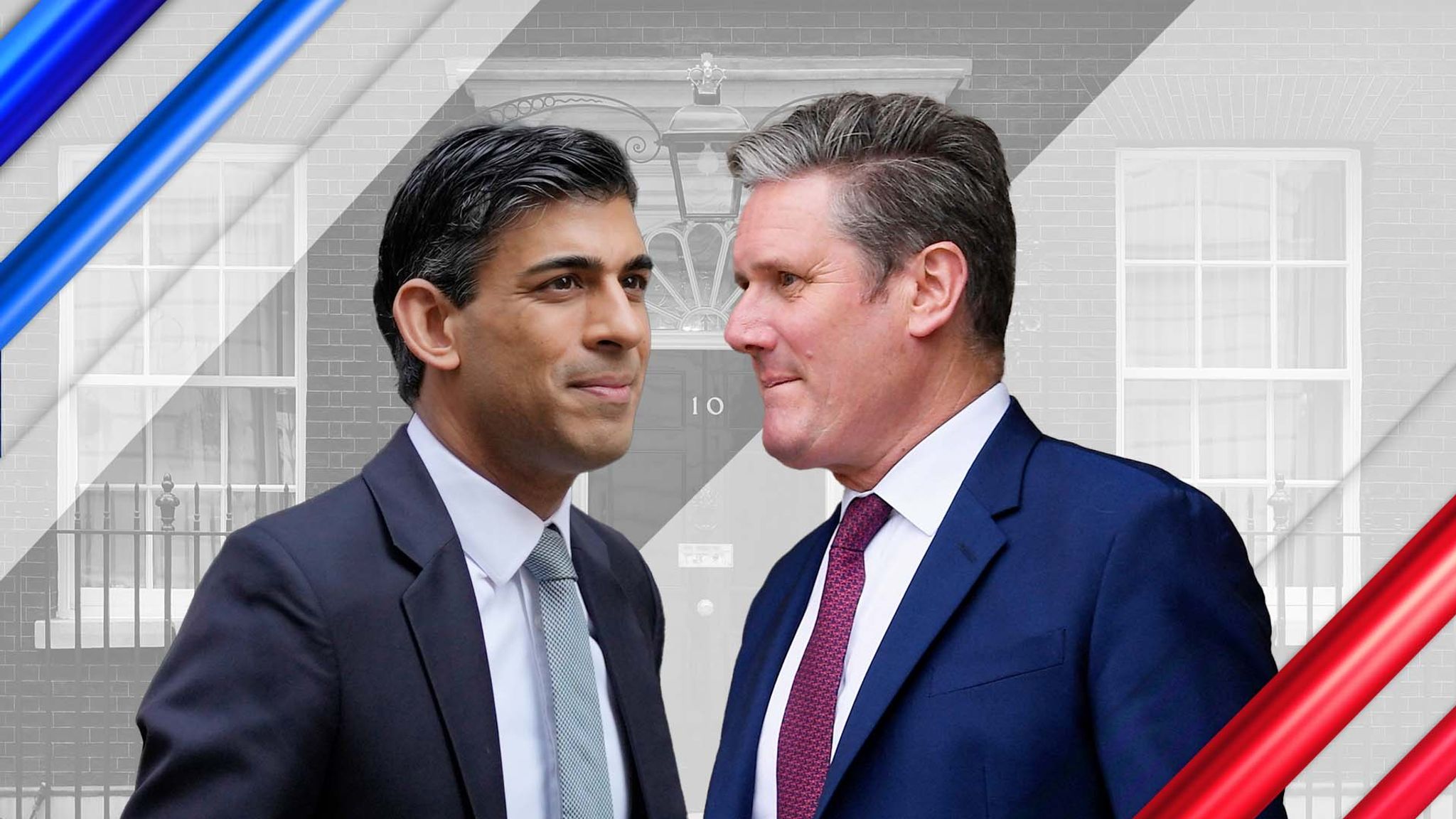
Prime Minister Rishi Sunak and Labour Leader Keir Starmer Launch Campaigns as July 4 Election Approaches
British Prime Minister Rishi Sunak and Labour Party leader Keir Starmer are set to kick off their election campaigns on Thursday, following Sunak’s unexpected call for a general election on July 4. This decision, announced amid heavy rain, ended speculation about an autumn election and marks the start of an intense six-week campaign period.
Sunak’s Conservative Party currently trails Labour by approximately 20 percentage points in opinion polls, making this election crucial for his political future. The Prime Minister’s decision to call an early vote is seen as a strategic move to gain momentum and counter Labour’s lead.
Sunak’s announcement caught many by surprise, as political analysts had widely anticipated an election later in the year, either in October or November. However, Sunak’s move indicates his readiness to confront Labour’s Keir Starmer head-on in a bid to secure a renewed mandate from the British electorate.
The upcoming election promises to be highly competitive, with both leaders poised to present their visions for the future of the UK. Sunak will likely focus on his government’s achievements and plans for economic recovery, while Starmer will emphasize Labour’s commitment to social justice and rebuilding public services.
As the campaign trail heats up, voters can expect a flurry of political activity, debates, and rallies as both parties vie for support. The outcome of this election will not only shape the next government but also set the direction for the country at a critical juncture.
-

 Somali Reading3 months ago
Somali Reading3 months agoIsbarbardhigga awoodda militeri ee Israa’iil iyo Iiraan
-

 Analysis3 months ago
Analysis3 months agoHow Gang Involvement Could Save Haiti: Unconventional Solutions
-
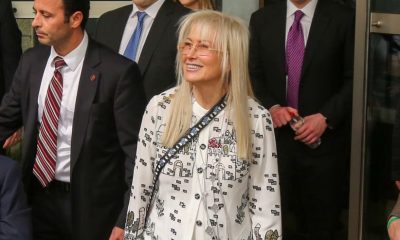
 Top stories3 months ago
Top stories3 months agoIsrael’s Hi-Tech Boom Propels Record-Breaking Presence on Forbes’ 2024 Billionaires List
-

 Analysis3 months ago
Analysis3 months agoGermany Detains Iraqi Couple Suspected of Genocide Against Yazidis
-

 Africa2 months ago
Africa2 months agoUSD 112M needed to save migrant lives in Horn of Africa, Yemen and Southern Africa
-

 Crime2 months ago
Crime2 months agoIndiana Mother Arrested in Connection with Death of 5-Year-Old Son Found in Suitcase
-
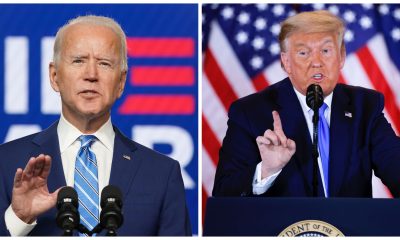
 Analysis2 months ago
Analysis2 months agoTrump vs. Biden: The Aftermath of White House Correspondents’ Dinner Jokes
-
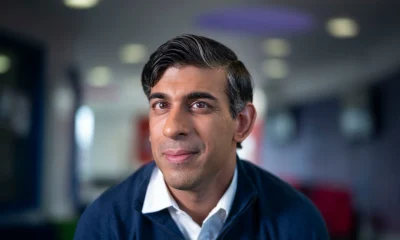
 Analysis2 months ago
Analysis2 months agoAnalysis: Rishi Sunak’s Return and the Conservatives’ Internal Conflict

